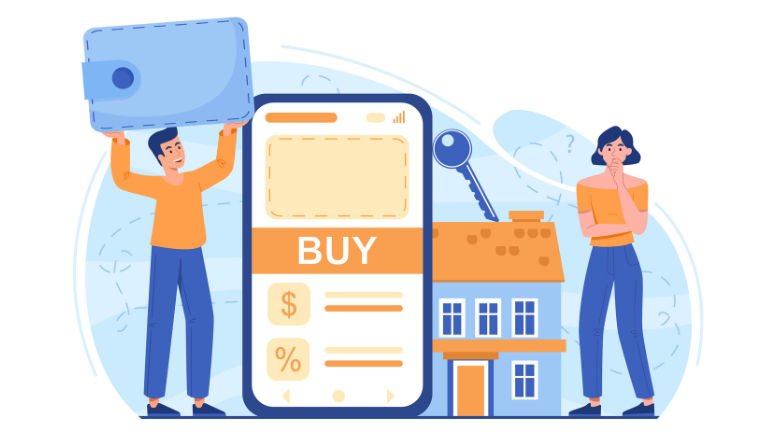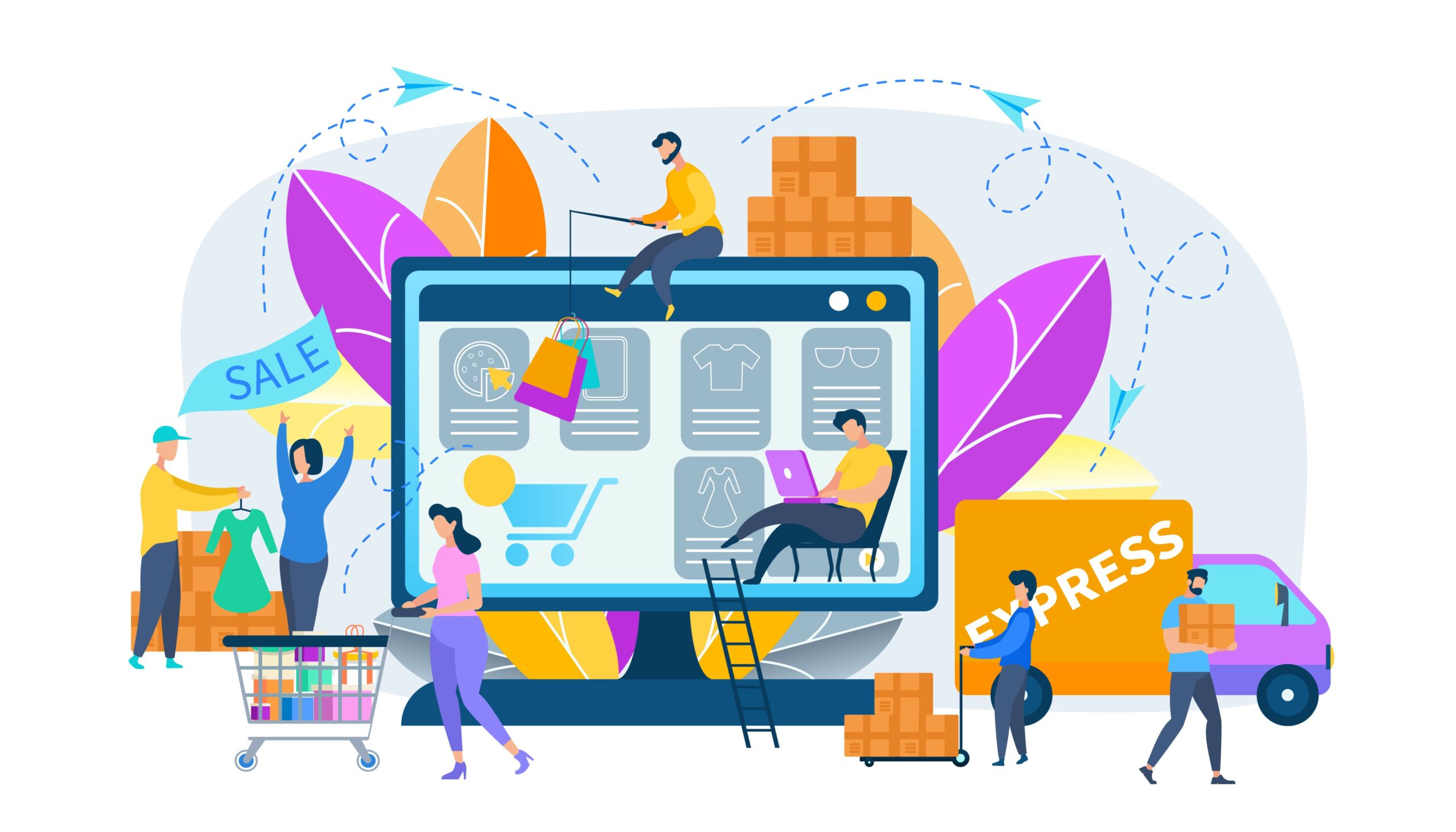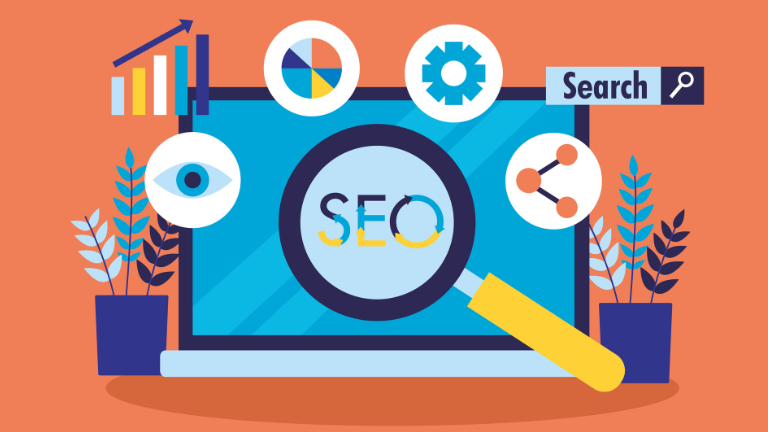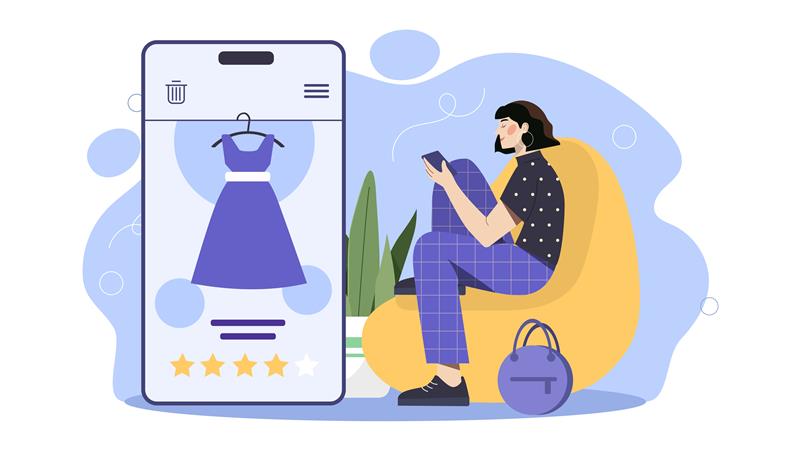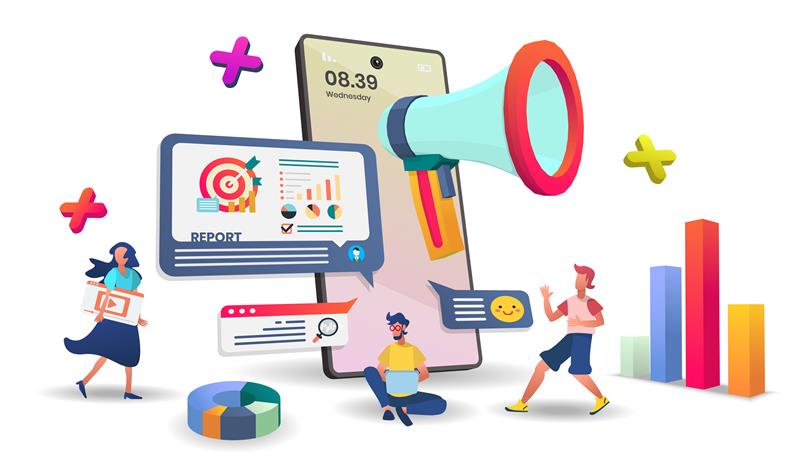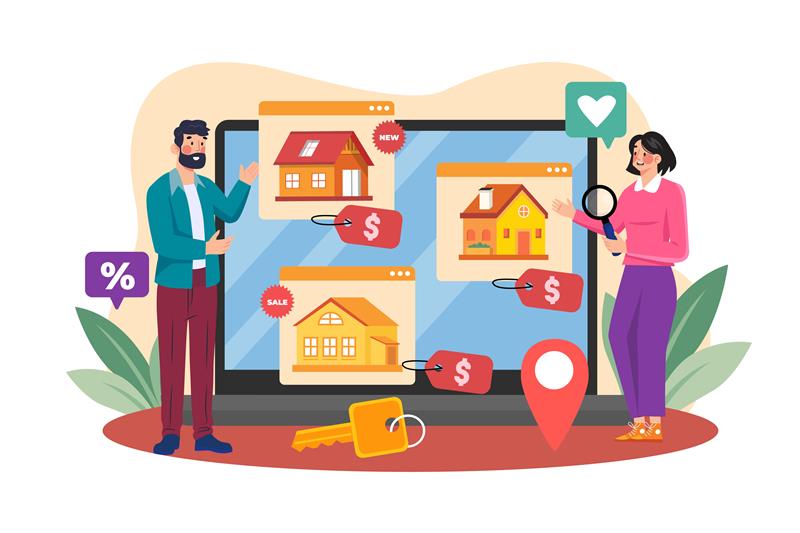Understanding the nuances between digital marketing and social media marketing is crucial for businesses aiming to optimize their online presence. While these terms are often used interchangeably, they are made up of completely distinct strategies and channels. This comprehensive blog delves into their differences for a clear understanding.
Digital Marketing
Digital marketing covers all marketing efforts that utilize electronic devices or the internet. It includes a broad range of channels such as search engines, email, websites, and mobile apps to connect with current and prospective customers.
Real-World Application
Consider a company like Amazon. It employs digital marketing through personalized email campaigns, search engine optimization (SEO) for product listings, and pay-per-click (PPC) advertising to drive traffic to its platform.
Statistics
In 2024, the global digital advertising market is projected to reach $740.3 billion, highlighting its expansive growth and significance in the marketing realm. Source – Enterprise Apps Today
Social Media Marketing
Social media marketing is a subset of digital marketing that focuses on creating and sharing content on social media platforms to achieve marketing and branding goals. It involves activities like posting text and image updates, videos, and other content that drives audience engagement.
Real-World Application
Glossier, a beauty brand, has effectively utilized platforms like Instagram to build a community-driven brand. By engaging directly with customers and encouraging user-generated content, Glossier has created a loyal customer base.
Statistics
As of 2024, there are approximately 5.17 billion social media users worldwide, each engaging with an average of 6.7 platforms monthly.
1. Scope and Definition
Digital Marketing
Digital marketing is an umbrella term that includes all forms of online marketing conducted through digital channels. These can include a company’s website, SEO, PPC (Pay-Per-Click) advertising, email campaigns, content marketing, affiliate marketing, and mobile apps. The primary goal is to attract, convert, and retain customers using various tools and data-driven strategies.
Social Media Marketing
This is a subset of digital marketing that focuses exclusively on using social media platforms such as Facebook, Instagram, Twitter (now X), LinkedIn, YouTube, and TikTok to market products, share content, and engage with audiences. It thrives on two-way communication, allowing brands to build a personality and connect with users directly.
2. Channels Utilized
Digital Marketing
- Search Engine Optimization (SEO)
- PPC Advertising
- Email Marketing
- Content Marketing
- Affiliate Marketing
- SMS & Mobile Marketing
Social Media Marketing
- Platform-Based Marketing
- Influencer Marketing
- Social Ads
- Community Building
3. Content Format and Strategy
Digital Marketing
Content in digital marketing is often educational, research-driven, and conversion-focused. It’s typically long-form and evergreen, designed to provide value over time. These include:
- Blog articles that rank for search queries
- E-books and whitepapers for lead generation
- Tutorial videos hosted on YouTube or websites
- Case studies and testimonials
Social Media Marketing
Social media content is short-form, interactive, and trend-driven. It focuses on:
- Reels and TikToks for quick engagement
- Polls, quizzes, stories to get instant feedback
- Memes, giveaways, behind-the-scenes content to humanize the brand
4. Audience Engagement
Digital Marketing
Engagement in digital marketing is often one-directional and optimized for conversions rather than conversation. While website visitors can leave comments or respond to emails, the interaction isn’t usually real-time.
Tactics Include:
- Pop-ups or CTAs prompting action (sign up, download, buy)
- Chatbots for handling queries
- A/B tested landing pages for conversion
Social Media Marketing
Here, the core is real-time two-way communication. Social platforms thrive on interactions such as:
- Responding to comments and DMs
- Hosting live Q&As
- Monitoring brand mentions and responding (social listening)
This makes social media more effective in building relationships, gathering feedback, and nurturing loyalty. 5. 5.
5. Performance Metrics
Digital Marketing
Performance is measured through hard KPIs that impact business directly:
- Traffic
- Cost per Click (CPC) and Return on Ad Spend (ROAS)
- Email Open Rates, Click-through Rates (CTR)
Social Media Marketing
While conversions are tracked, much of social media’s value lies in engagement metrics, including:
- Likes, comments, shares
- Follower growth rate
- Reach and impressions
- Video view count
- Clicks to website from posts or bios
6. Cost Implications
Digital Marketing
Digital marketing can be more resource-intensive, especially when employing multiple strategies like SEO, PPC advertising, and email automation tools. The costs typically include:
- Ad spend on platforms like Google Ads or Bing Ads, which can become expensive depending on keyword competition.
- SEO services, which require a long-term investment in content creation, technical optimization, and backlink building.
- Marketing automation tools like HubSpot or Mailchimp, which can cost hundreds of dollars per month based on usage.
- Content creation such as whitepapers, video tutorials, or webinars, often requiring professional input.
Social Media Marketing
Social media marketing is often more affordable, particularly when focusing on organic growth and user-generated content. Brands can:
- Post organically without spending on ads
- Use free tools like Canva for creatives
- Collaborate with micro-influencers on a barter basis
- Leverage trends and reels for viral reach without boosting
That said, paid social campaigns (sponsored posts, influencer partnerships, or story ads) still come with costs, but often lower than search-based PPC.
7. Conversion Goals
Digital Marketing
The primary objective of most digital marketing campaigns is to drive measurable actions—also known as conversions. These actions could include:
- Product purchases
- Service sign-ups
- Free trial registrations
- Webinar bookings
- Downloading resources (eBooks, PDFs)
Digital campaigns are typically structured around performance funnels:
- Top of Funnel (TOFU) – Attracting traffic via SEO, PPC, or content
- Middle of Funnel (MOFU) – Educating and nurturing leads
- Bottom of Funnel (BOFU) – Converting leads into paying customers
Social Media Marketing
Social media is often about building awareness and trust first, and conversions happen more gradually. Its goals include:
- Increasing brand visibility
- Creating a loyal community
- Encouraging shares and engagement
- Driving website traffic indirectly
While direct conversions like product sales through Instagram Shopping or Facebook Ads are possible, social media usually supports the upper and middle funnel. It nurtures intent over time through engagement, which can later be capitalized on via retargeting or email.
Comparison Table – Quick Recap
| Aspect | Digital Marketing | Social Media Marketing |
| Scope & Definition | Broad – includes all online channels | Specific to social media platforms |
| Channels | SEO, PPC, Email, Website, Content Marketing | Facebook, Instagram, X, LinkedIn, TikTok |
| Content Format | Long-form (blogs, whitepapers, emails) | Short-form (posts, reels, stories) |
| Audience Engagement | Indirect and strategic | Real-time and interactive |
| Performance Metrics | Traffic, conversions, ROI | Likes, shares, comments, reach |
| Cost Implications | Often higher – tools, ads, SEO | Cost-effective – organic + paid social |
| Conversion Goals | Direct – sales, sign-ups, leads | Indirect – brand loyalty, awareness |
Choosing the Right Approach with Gyaata Solutions
Both digital marketing and social media marketing serve unique purposes in a modern business’s growth journey. While digital marketing focuses on structured campaigns and high-intent conversions, social media excels at building relationships, community, and awareness.
At Gyaata Solutions, we understand that one size doesn’t fit all. That’s why we offer both digital marketing and social media marketing services – tailored to your business goals. Whether you’re looking to generate leads through SEO and PPC or grow an engaged social community, our integrated strategies deliver results across channels.



